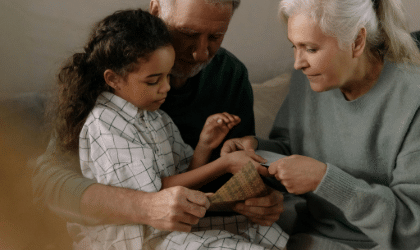As you recover from a personal injury, medical expenses and missing paychecks can leave you wondering how you will ever pay all your bills and continue supporting your family. Applying for statutory accident benefits coverage, combined with financial planning, can assist your family’s finances as you focus on your health.
Types of Financial Assistance During Personal Injury Recovery
After suffering an injury, you may qualify for accident benefits and other financial help from your insurer, the Ontario or Canadian governments, or other sources. These benefits might require medical evidence proving that you have a qualifying injury. In the case of insurance benefits, you could be required to attend insurer examinations to prove that you legally qualify for the help.
You may qualify for one or more accident benefits:
1. Income Replacement Benefits (IRBs)
If your physical or mental injuries prevent you from working, you may be entitled to Income Replacement Benefits. These benefits may come from your car insurance or any disability insurance that you have purchased, or which your employer provides.[1] To qualify, you must have been employed or self-employed for the 52 weeks before your accident, or employed at least 26 of those weeks and receiving employment insurance (EI) at the time of your accident.
You will not receive any IRB for the first week, but after that, you could receive 70 percent of your previous income, up to a maximum of $400 a week in Ontario. If you or your employer purchased optional insurance, this amount may be higher. These payments may last up to two years.
To qualify after the two-year mark, you will need to show medical proof that you are completely unable to return to work. You may still qualify for benefits, but the amounts could change, and they could also change after you turn 65.
2. Non-Earner Benefits (NEBs)
Non-Earner Benefits are similar to IRBs, but they apply to certain situations where the insured was not employed. For example, if you were a student, or if you graduated less than a year before the accident and had not yet found a job. You may qualify if you are temporarily or completely unable to carry on a normal life after the accident. You can only qualify for NEB if you are not eligible for and do not apply for IRB or caregiver benefits.
You will not receive any NEB payments for the first month after the accident. After this time, you may receive $185 per week for up to two years after the accident.
3. Caregiver Benefits
If you provided unpaid care for a dependent in your home at the time of the accident, and are now substantially unable to continue providing this care, then you may qualify for caregiver benefits from your insurance policy. You can only qualify for caregiver benefits if you do not receive IRB or NEB.
Caregiver benefits generally provide $250 per week for the person needing care, plus $50 per week for each additional dependent under your care. To continue receiving these benefits after two years, you must prove a complete inability to carry on a normal life.
To learn more about IRB, NEB, and caregiver statutory accident benefits coverage,[2] consult your insurance policy, the Ontario government website, or talk to a lawyer.
4. Short-Term Disability (STD) and Long-Term Disability (LTD) Benefits
You or your employer may have purchased short-term or long-term disability insurance. You receive these benefits when you are unable to work after your personal injury.
STD benefits compensate you temporarily when you are unable to perform your usual job functions. If your disability permanently prevents you from performing your own occupation (or any occupation) then you may qualify for LTD benefits when your STD benefits end.
Both short-term and long-term disability benefits provide a percentage of your pre-accident income and vary depending on the policy. To learn more, review your disability insurance policy and its requirements for applying, or talk to a lawyer.
5. Employment Insurance (EI)
The Canadian government provides Employment Insurance funds temporarily to unemployed workers, and they may provide Sickness Benefits if you are injured. Your doctor must sign a medical certificate for you to qualify for Sickness Benefits. You should apply for EI as soon as possible after you stop working, even if your employer has not yet issued a record of employment (ROE), since delays longer than four weeks can reduce the benefit amount.
If you are unable to work after an injury, you may receive EI benefits for as long as 15 weeks. These payments could be up to 55 percent of your average insurable weekly earnings in the 52 weeks before your claim, to a maximum of $562 per week capped at $53,100 (as of January 2019).
Learn more about EI from the Government of Canada or talk to your lawyer.
6. Ontario Disability Support Program (ODSP) and Ontario Works (OW)
The Ontario government provides these benefits. To qualify for ODSP disability benefits, you must provide medical evidence showing your continuous, substantial medical or physical impairment, expected to last at least a year, and restricting your ability to work, care for yourself, and participate in community life.
For OW social assistance, your eligibility will depend on your financial situation and your willingness to find a job. Learn more about the ODSP or OW from the Ontario Ministry of Children, Community and Social Services, or talk to your lawyer.
7. Canada Pension Plan for Disability (CPPD)
You may qualify for a Disability Pension from the Canadian government if you are not yet receiving a retirement pension. If you are under the age of 65, you must have contributed to CPP during four of the past six years or three out of six years when you have a history of 25 years or more of contributions. You may qualify for the post-retirement disability benefit if you were injured while receiving your pension.
To qualify, you must have a severe and prolonged disability of long-term and indefinite duration. This physical or mental disability must prevent you from working any job.
You and a medical doctor or nurse practitioner must complete a medical report to apply. Learn more from Employment and Social Development Canada or talk to your lawyer.
8. Litigation Loans
If you do not qualify for statutory accident benefits, or if they are not enough to cover your expenses, you could apply for a litigation loan. This borrows money from a potential settlement before your lawsuit is resolved. You repay this loan, without interest, from your settlement.
To learn more about litigation loans, talk to your lawyer.
Budgeting Tips During Personal Injury Recovery
Even when you receive these accident benefits and other financial resources, they may still not cover the full income you enjoyed before your accident. This means you and your family will need some financial planning to adjust to a lower income during your recovery.
Your first step in budgeting for personal injury recovery involves listing your income, such as statutory accident benefits. Compare this to your list of expenses, including rent or mortgage, transportation, prescriptions, medical equipment, and food. When possible, eliminate unnecessary expenses.
You can save by eating at home more often and you can temporarily boost your financial reserves by selling some unneeded household goods. If you owe money to a credit card, bank, or landlord, they may be sympathetic to your situation. Give them a call to see if they have a debt relief policy that reduces payments or interest for someone in your circumstances.[3]
Preparing a budget will help you determine how your benefits and other available funds compare with the amount needed to cover household expenses. If you are still falling short, you can look into a litigation loan, or seek support from family and friends to get by during your lawsuit.
How to Help a Friend After a Personal Injury
If you have a friend or family member who has experienced a personal injury, chances are they are coping with financial stress on top of their medical recovery. Let them know they may qualify for statutory accident benefits coverage and share these budgeting tips to help them through their healing.
Read More:
5 Ways to Save Money on Disbursements
How Possible Change to Ontario’s Accident Benefits Program Can Harm The Injured










